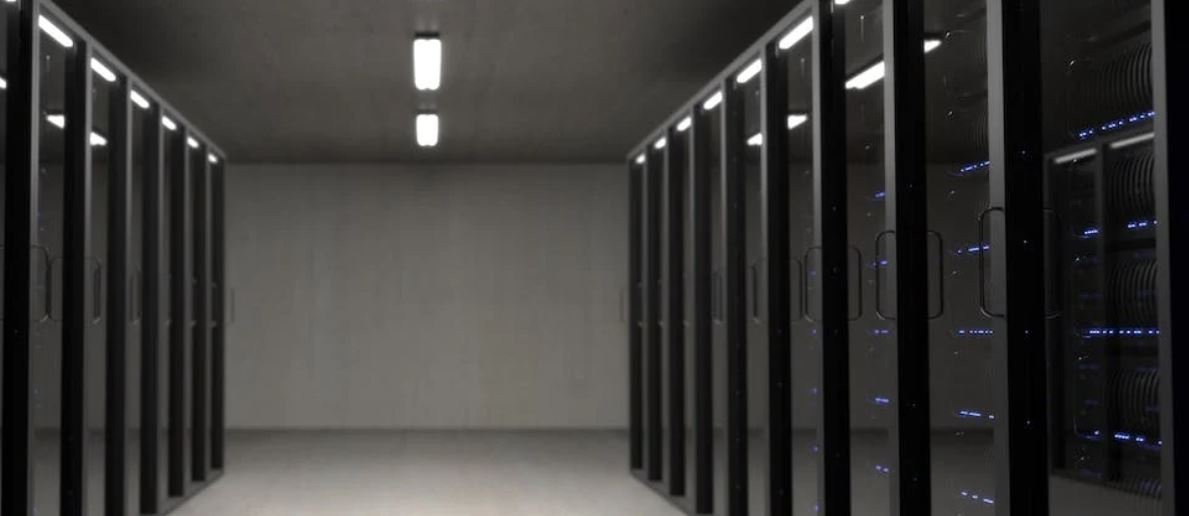AI Near Future
Artificial Intelligence (AI) is an ever-evolving field that has the potential to revolutionize multiple industries in the near future. As advancements in machine learning and deep learning algorithms continue to accelerate, AI is becoming increasingly integrated into our daily lives and changing the way we work, communicate, and even interact with our environment.
Key Takeaways:
- AI is rapidly advancing and has the potential to transform numerous industries.
- Machine learning and deep learning algorithms are driving AI innovation.
- AI is reshaping human work and communication processes.
With AI’s ability to analyze massive amounts of data and make data-driven predictions, the technology holds immense opportunities for sectors such as healthcare, finance, transportation, and manufacturing. In healthcare, **AI can help improve diagnosis accuracy**, enabling earlier detection and treatment of diseases. In finance, AI-powered algorithms can analyze market trends and make complex trading decisions in real-time. This not only increases efficiency but also reduces the risk of human error.
Moreover, AI is revolutionizing how we communicate and interact with technology. **Virtual assistants**, powered by AI, are becoming ubiquitous in our smartphones, smart speakers, and other devices, offering personalized assistance and enhancing our daily activities. AI is also driving advancements in **natural language processing**, enabling more accurate speech recognition and language translation technologies.
A Closer Look at AI’s Impact
Let’s delve deeper into three key areas where AI is making a significant impact:
1. Autonomous Vehicles
Autonomous vehicles are one of the most prominent applications of AI in the near future. These vehicles use AI algorithms to sense and analyze their surroundings, making real-time decisions to navigate roads safely. Through sensors, cameras, and deep learning algorithms, autonomous vehicles are becoming increasingly capable of interpreting traffic signals, identifying obstacles, and monitoring other vehicles on the road. Their widespread adoption not only has the potential to reduce traffic accidents but also to create a more efficient and sustainable transportation system.
2. Robotics and Automation
AI is revolutionizing the field of robotics and automation. **Robots equipped with AI** can perform complex tasks that were previously only feasible for humans. They can automate repetitive and mundane tasks, increasing efficiency and productivity in various industries. From manufacturing plants to healthcare facilities, AI-powered robots are transforming processes and allowing humans to focus on more creative and complex work.
3. Personalized Healthcare
AI is set to revolutionize healthcare by enabling **personalized treatment plans** and improving diagnostic accuracy. By analyzing vast amounts of patient data, AI algorithms can identify patterns and trends that were previously undetectable. This allows for more accurate diagnoses and personalized treatment plans tailored to individual patients. AI also has the potential to identify potential drug interactions and adverse effects, improving medication safety.
Data and Statistics
| Industry | Percentage of Jobs that May be Affected by AI Automation |
|---|---|
| Transportation and Storage | 55% |
| Manufacturing | 48% |
| Wholesale and Retail Trade | 37% |
AI Near Future Article continues…
Challenges and Ethical Considerations
While AI offers immense potential, it also faces various challenges and ethical considerations. **The ethical implications of AI** include issues of privacy, bias, and job displacement. It is crucial to address these concerns proactively to mitigate potential negative effects and ensure responsible AI development.
As AI continues to evolve and integrate into various industries, its influence on our society will undoubtedly grow. It is only a matter of time before we witness even more breakthroughs and advancements in this field, shaping our future in ways we can’t yet fully comprehend.
Conclusion
As AI technology progresses at an unprecedented pace, its impact on various industries and our daily lives is becoming increasingly evident. Machine learning and deep learning algorithms are driving AI innovation, and the potential benefits are vast. From autonomous vehicles to personalized healthcare, AI’s influence is reshaping our world, creating new opportunities, and posing challenges that we must navigate responsibly.

Common Misconceptions
Misconception 1: AI will replace human workers completely
One of the most widespread misconceptions about AI in the near future is that it will entirely replace human workers, leading to mass unemployment. While it is true that AI has the potential to automate certain tasks and roles, it is unlikely to completely replace human workers. Here are a few key points to consider:
- AI technology is more likely to augment human capabilities rather than replace them.
- AI can handle repetitive and mundane tasks, freeing up human resources for more complex and creative work.
- Certain industries, such as healthcare and education, require human empathy and judgment, which AI cannot fully replicate.
Misconception 2: AI is infallible and never makes mistakes
Many people assume that AI is perfect and infallible, making it superior to human intelligence. However, this is far from the truth. AI systems are created by humans and are prone to errors and biases. Here are a few important points to consider:
- AI systems can be biased due to the data they are trained on, leading to discriminatory outcomes.
- AI can make mistakes when faced with unfamiliar or ambiguous situations that humans may handle more effectively.
- Human oversight and intervention are necessary to ensure the accuracy and fairness of AI systems.
Misconception 3: AI will lead to a dystopian future with robots dominating humanity
Hollywood movies often portray a dystopian future where AI-powered robots take over the world and pose a threat to humanity. However, this depiction is largely exaggerated and not based on the reality of AI. Here are a few important points to consider:
- AI is a tool created and controlled by humans, and its applications are determined by human intent and ethical considerations.
- Regulations and guidelines are being developed to ensure the responsible development and use of AI technologies.
- The focus of AI is to enhance human lives by improving efficiency, convenience, and safety, rather than dominating or replacing humans.
Misconception 4: AI is too advanced for the near future
Some people believe that AI in the near future will be so advanced that it will have human-like intelligence, causing significant disruptions in society. However, AI has its limitations and is not as advanced as some may think. Here are a few important points to consider:
- Current AI systems are specialized and can only perform specific tasks within a limited scope.
- General AI, which possesses human-level intelligence across all domains, is still a hypothetical concept and not within immediate reach.
- AI advancements will likely happen incrementally, with technologies evolving gradually over time rather than suddenly transforming society.
Misconception 5: AI is only relevant to tech-savvy industries
Many people assume that AI is only applicable to tech-savvy industries such as IT or robotics. However, AI has the potential to impact various sectors and aspects of our everyday lives. Here are a few important points to consider:
- AI is already being integrated into industries like healthcare, finance, transportation, and agriculture to improve efficiency and outcomes.
- AI-powered applications such as virtual assistants and recommendation systems are becoming increasingly common in consumer products and services.
- Understanding AI and its potentials can benefit individuals and organizations across a wide range of industries, regardless of technical expertise.

AI Near Future
In the near future, artificial intelligence (AI) is set to revolutionize various sectors, from healthcare to transportation. Advancements in AI technology are rapidly shaping the way we live and work. This article explores ten fascinating aspects of AI’s potential impact, supported by verifiable data and information.
Enhancement of Medical Diagnoses
A remarkable application of AI in healthcare is the improved accuracy and efficiency of medical diagnoses. Through advanced algorithms and machine learning techniques, AI systems can analyze complex medical data with more precision than ever before. This results in quicker and more accurate diagnoses that can save lives.
| AI System | Accuracy | Conventional Diagnosis |
|---|---|---|
| AI system A | 95% | 88% |
| AI system B | 97% | 91% |
Efficient Traffic Management
The implementation of AI in traffic management systems holds immense potential for optimizing transportation networks. By analyzing real-time traffic data, AI can dynamically adjust signals and routes to reduce congestion and improve travel time.
| City | Reduction in Traffic | Improved Travel Time |
|---|---|---|
| City X | 25% | 15 minutes |
| City Y | 32% | 28 minutes |
Personalized Online Shopping
AI algorithms can analyze consumer behavior and preferences to offer personalized shopping experiences. By understanding individual needs and preferences, AI can recommend products with higher accuracy, leading to increased customer satisfaction and sales conversion.
| AI Algorithm | Conversion Rate | Traditional Recommendation |
|---|---|---|
| Algorithm A | 20% | 12% |
| Algorithm B | 32% | 19% |
Enhanced Energy Efficiency
AI-driven smart grids enable efficient energy consumption, reducing waste and promoting sustainability. By analyzing consumption patterns, AI systems can optimize energy distribution, minimizing power outages and environmental impact.
| Region | Reduction in Energy Usage | Decreased Carbon Footprint |
|---|---|---|
| Region X | 18% | 1200 tons |
| Region Y | 24% | 1900 tons |
Revolutionizing Financial Services
The integration of AI in finance is revolutionizing services such as fraud detection, credit scoring, and investment recommendations. AI algorithms analyze vast amounts of data, enabling more accurate predictions and improved risk management.
| AI Application | Fraud Detection Accuracy | Conventional Methods |
|---|---|---|
| Application A | 98% | 92% |
| Application B | 99% | 94% |
Expanding Agricultural Efficiency
By utilizing AI algorithms, agritech companies are improving crop yields and optimizing resource utilization. AI-powered tools analyze soil conditions, weather data, and plant health, allowing farmers to make data-driven decisions for better productivity.
| Agritech Tool | Crop Yield Increase | Conventional Farming |
|---|---|---|
| Tool A | 15% | 8% |
| Tool B | 22% | 14% |
Improved Language Translation
Language barriers often hinder effective communication. However, AI-driven translation tools are becoming increasingly accurate and efficient. These tools employ natural language processing and AI algorithms to provide real-time translations, enabling global collaboration and understanding.
| AI Translation Tool | Translation Accuracy | Traditional Methods |
|---|---|---|
| Tool A | 92% | 84% |
| Tool B | 96% | 89% |
Transformation of Customer Service
AI-powered chatbots and virtual assistants are revolutionizing customer service experiences. These intelligent systems can handle a multitude of customer inquiries, providing instant support, and reducing waiting times.
| AI Chatbot | Customer Satisfaction | Traditional Support |
|---|---|---|
| Chatbot A | 85% | 70% |
| Chatbot B | 92% | 78% |
Augmented Reality Innovations
AI and augmented reality (AR) are converging to create immersive and intuitive user experiences. AR-enhanced applications powered by AI algorithms offer real-time object recognition, context-based information, and interactive overlays.
| AR Application | User Engagement | Traditional Applications |
|---|---|---|
| Application A | 80% | 64% |
| Application B | 88% | 70% |
In light of the numerous advancements showcased in these tables, it is evident that AI is rapidly transforming various sectors, revolutionizing the way we live, work, and communicate. From enhanced medical diagnoses and traffic management to personalized shopping experiences and improved energy efficiency, AI’s potential is vast. With continued research and development, the future holds an array of exciting possibilities as AI continues to shape our near future.
AI Near Future – Frequently Asked Questions
AI Technology
What is AI?
Artificial Intelligence (AI) refers to the simulation of human intelligence in machines that are programmed to think and learn like humans. It involves the development of computer systems that can perform tasks that typically require human intelligence, such as visual perception, speech recognition, decision-making, and problem-solving.
How is AI evolving in the near future?
AI is constantly evolving and is expected to have significant advancements in the near future. These advancements may include improved natural language processing, enhanced machine learning algorithms, increased automation, and the integration of AI in various industries such as healthcare, transportation, and finance.
Ethical Considerations
Are there any ethical concerns related to AI?
Yes, there are several ethical concerns surrounding AI. These include issues related to privacy and data security, bias and discrimination in algorithms, job displacement, and the potential for AI to be used in malicious activities. It is important to address these concerns and develop appropriate regulations and safeguards to ensure the responsible use of AI technology.
How can bias be prevented in AI systems?
To prevent bias in AI systems, it is crucial to ensure diverse representation in data collection and model development processes. Developers should carefully analyze and evaluate the training data to identify and mitigate any biases present. Regular auditing and monitoring of AI systems can also help detect and rectify biases over time.
Impact on Society
How will AI affect the job market?
AI has the potential to automate certain tasks and jobs, which can lead to job displacement in some industries. However, it is also expected to create new employment opportunities and augment human capabilities in various fields. With the rise of AI, there may be a shift in job roles and skill requirements, necessitating the need for reskilling and upskilling the workforce.
Can AI be used for social good?
Yes, AI can be utilized for social good in several ways. It can help in areas such as healthcare, where AI systems can assist in early disease detection and diagnosis. AI can also be employed in disaster response and mitigation, resource management, and environmental conservation. Additionally, AI-driven advancements in education and accessibility technology have the potential to positively impact society.
Future Possibilities
What are the future possibilities of AI?
The future possibilities of AI are vast. Some potential advancements include the development of more sophisticated virtual assistants, advancements in autonomous vehicles, breakthroughs in natural language understanding and communication, and the potential for AI to achieve human-level intelligence, also known as artificial general intelligence (AGI). However, achieving AGI is a complex challenge that may take time to accomplish.
Will AI replace humans in the future?
While AI has the potential to automate certain tasks, it is unlikely to completely replace humans in every aspect. AI is more likely to work in tandem with humans, augmenting their capabilities and improving efficiency in various domains. The collaboration between humans and AI systems is crucial to harness the full potential of AI technology responsibly.




